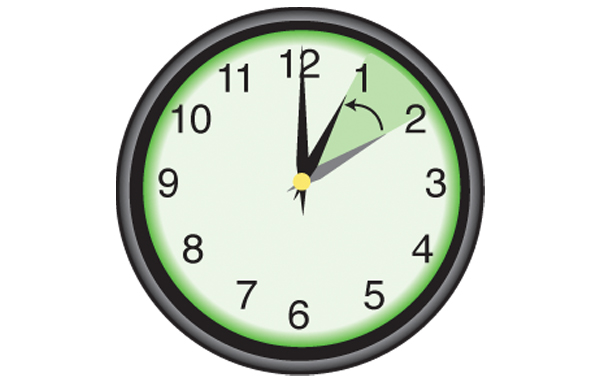Night owls, rejoice! One of your favorite days of the year is at hand.
The annual end of daylight saving time not only gives night people an extra hour to sleep in the morning — at least until the routine sets in — but it also means that 2 a.m. will last two hours on Sunday morning.
That means whatever you do during the first hour of 2 a.m. doesn’t count, right?
Still, there’s a downside to the tradition of resetting clocks to “fall back.” It emphasizes the time of year, especially in the Pacific Northwest, when the dark nights grow ever longer and the daylight hours grow ever shorter.
Reduced sunlight can cause mood and sleep problems for many people, even if they’re not prone to seasonal affective disorder.
“In general, darkness stimulates our body to want to sleep,” said Michael Rothenfluch, staff psychiatrist at Vancouver-based PeaceHealth Southwest Medical Center. “That’s not just because of lack of light. Chemicals in our brains actually get triggered because of the darkness. That can lead to fatigue and a desire to sleep more.”
Seasonal affective disorder adds depression, sadness and disrupted sleep into that equation.
But whether it’s SAD or something less severe, a few tricks with light can often make the darkness of winter a lot more bearable, he said.
“Many people think that they can’t get light exposure in the winter by going outside, and that’s not true,” Rothenfluch said. “Even on the cloudiest, darkest day you get a lot more light by going outside than you do if you stay indoors.”
Taking a 20- or 30-minute walk outside, even if it’s drizzling, can make a huge difference in getting sunlight and fighting the winter doldrums.
Vitamin D supplements can improve mood and sleep issues. The body synthesizes it naturally through exposure to sunlight, so in the Pacific Northwest’s light-deprived winter, vitamin D deficiencies can be common.
Light therapy lamps, which may or may not help with vitamin D production, can strategically pump up your energy level during the dark evenings and mornings.
“The brain is very attuned to how much daylight there is,” said Marlene Dietrich, medical director of the Sleep Center at PeaceHealth. “Bright light is very helpful in the morning to get you started.”
For those who have sleep problems in the winter, she recommends 20-30 minutes with a light box in the morning while eating breakfast to wake up, and perhaps another 20-30 minutes at around 4 p.m. to help if you’re feeling sleepy too early in the evening.
“People tend to want to sleep longer in the winter because of the lack of light, so full spectrum lights can be helpful,” Dietrich said. “You don’t want to sit and stare at them though, you want to put them a few feet off to the side, and maybe read the paper or do some other activity while it’s on.”
As time shifts, you can help your body adjust by keeping to a regular schedule for meals and bedtimes.
“Exercise late in the day, at around 5 p.m., can help,” Dietrich said, “although you don’t want to do it too close to bedtime.”
On the flip side, video games, televisions and cell phones with bright screens can disrupt sleep cycles by mimicking a light box too late into the evening, she said.
“With the bright light of computers and TV, everybody’s a little sleep-deprived,” Dietrich said. “Really, you should turn those off and get ready for bed by doing things like relaxing quietly with a good book.”
People who take melatonin should be aware that the supplements can take three to four hours to kick in. Many take the pills right before bed, which is too late for most people, Dietrich added.
The rapid approach of the holiday season can add to sleep problems and winter doldrums, Rothenfluch said.
“I think a lot of times, holidays bring a lot of memories of loss for people, and I think that may play a role in the worsening of people’s moods,” he said. “And families, while they are our sources of love and strength, they can also be sources of stress.”
To fight off those issues, Rothenfluch recommends finding one activity to do just for yourself every day for perhaps 30 minutes.
“Do one thing that gives you a sense of rest, wellbeing and pleasure, like reading, playing golf or playing with your kids,” he said. “That’s good advice to follow anyway, but especially through the holidays and this time of year.”



